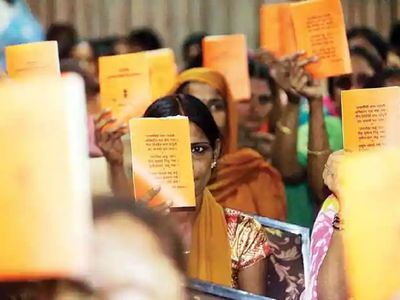The honorable Supreme Court has directed all Union territories and State Govt. The One Nation- One Ration card system (ONORC) will be implemented all over the nation by 31st July 2021. By doing so, all the modern technology will be deployed for serving the poor people.
The PDS ( Public Distribution System) is on making since 2011 when that UIDAI panel head Mr. Nandan Nilekani suggested the idea of two-phased technology to enhance the PDS network. The first stage is to reconstructing the supply chain, and the second was to make a straight shift of Subsidies.
Many PDS beneficiaries are suffering due to many problems, such as wrong inclusion & exclusion, ghost beneficiaries, same beneficiaries, etc. They are not getting benefitted from the schemes introduced for them. Therefore it is recommended to built a PDS network or NIU (national Information utility) to make a robust infrastructure for reforming and to make strong PDS.
What is ONORC?

The ONORC is a type of scheme in which any migrant workers or people from the poorer section of society can buy ration at a subsidized price from any ration shop (fair-price ration shop) all over the country. It came under the National Food Security Act in 2013.
For example, if a migrant worker shifted to Andhra Pradesh from Mumbai, they can access their PDS benefits in Andhra Pradesh. The person can purchase foodgrains from the Fair-price shop as per the NFSA, in which place they are based. Also, their family members can buy on their behalf.
Central Govt. has offered incentives to the states for the promotion of this scheme. The states that implement the ONORC plan can take extra 37,600 crores in the year 2020-2021.
How ONORC works?
The working of ONORC is based on technology. That technology involves Aadhar card details, ration cards, and ePoS. Through biometric authentication, a system identifies the beneficiary. Beneficiary person real-time information is shared between Annavitaran Portal for assurance. Also, the annavitaran portal maintains a record of the beneficiary. After this, a person can buy food grains at a subsidized price, for example- rice at 3/kg, coarse grain at 2/kg, wheat at 2/kg, etc.
